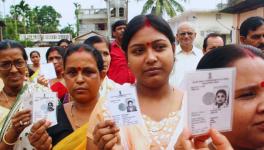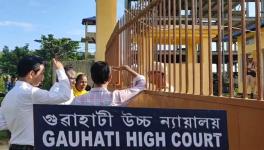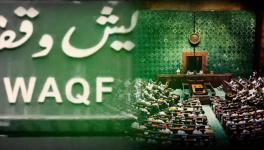Gauhati HC Overturns FT Order, Declares Man to be Indian Citizen
The Gauhati High Court has set aside an order passed by Foreigners Tribunal Barpeta, declaring a person as a foreigner, while observing the many flaws in the Tribunal’s order. The Division Bench of Justices N Kotiswar Singh and Manish Choudhury were of the firm opinion that the petitioner was able to show linkage between himself, his father and his grandfather and thus declared him to be an Indian citizen. The bench declared him a citizen, instead of remanding the matter back to the Tribunal as that would merely delay the proceedings as also on account of the overwhelming evidence in favour of the petitioner.
The petitioner Haidar Ali challenged the order passed by Foreigners Tribunal Barpeta, passed in January 2019, which declared him a foreigner under section 2(a) of the Foreigners Act, 1946.
Background
The Tribunal had taken up the matter on a reference being made by the Superintendent of Police (B), Barpeta against Ali. He had contended before the Tribunal that the investigating authority did not make any field visit during the investigation and never asked the petitioner to produce any documents and as such, the proceeding was liable to be dismissed on that ground.
He also made submissions on merit stating that his grandparents’ names appeared in the voters lists of 1965 & 1970 of village- Nalirpam and that his parents' names appeared in the voters lists of 1989 & 1997 of village Karagari Nonke since they had moved from Nalirpam. Further, his name appeared along with his parents names in voters lists of 2010 and 2018. He also produced a certified copy of Jamabandi of 2008 for the property inherited by his father and his brothers and few other documents including voter ID cards, school leaving certificate, birth certificate and voters lists.
As witnesses, Ali’s father was examined, along with the Principal of his school as well as the Gaonburah of Barsimla village in support of the certificate issued by him. There was no objection to the admissibility of any of these documents, and the State also did not lead any evidence to rebut this evidence adduced by the petitioner. Yet, the Tribunal declared him a foreigner stating that he failed to discharge his burden of proving that he is an Indian. The Tribunal stated that in the voters’ list 7 person’s names appear but the petitioner failed to mention his link with them. The petitioner had failed to mention the link of the petitioner with the other persons mentioned in the voters list of 1970 and also with his father and grandparents Nadu Miya and Aymona in his written statement. Accordingly, the Tribunal held that the petitioner could not establish the linkage in a proper manner.
Linkage with relatives
The court observed that in the non-explanation of the linkage of the petitioner with others whose names were shown along with his grandparents in the voters list of 1970 does not affect the credibility or genuineness of the evidence in the form of voters list of 1970, to show the linkage of the petitioner with his grandparents. The court stated that what was required to be considered by the Tribunal was whether Harmuz Ali was the father of the petitioner and Haowa Khatun, his mother, and in turn, whether Nadu Miya and Aymona Nessa were parents of Harmuz Ali, who undisputedly were all Indian citizens. Basically, the Tribunal had to be concerned with whether there is evidence to show that the petitioner is the child of his parents and to prove how his paternal grandparents are related to his father.
The court examined the materials and concluded that voters list of 1965 shows that the names of Nadu Mia and Aymona Nessa are included who the petitioner claims to be his grandparents, thereby showing that they were Indian citizens.
Even though the court would not normally entertain fresh documents, yet it compared a copy of 1971 voters list in which the names of the petitioner’s father, Harmuz Ali is shown along with his father Nadu with 1970 voters list, for its own satisfaction. The court thus concluded that petitioner’s father, Harmuz Ali is the son of Nadu Mia as clearly established by voters lists of 1970, 1971 and 1965.
“Non explanation of relationship of the petitioner with other persons mentioned in the voters list of 1970 cannot be a ground for disbelieving the correctness of the entry of the names of the grandparents in the voters list, when the correctness of the entry of the names of the petitioner’s father and grandfather was not questioned,” the court held.
“As such, the fact in issue was not whether the petitioner had other relatives also. Thus, non-mentioning of his other relatives as well as that of his father cannot be a ground for disbelieving his testimony and the documents relied upon by the petitioner. Of course, if the petitioner had disclosed in more detail the family tree, it would rather strengthen his claim, but failure to disclose the names of all the members of the family cannot weaken his case and render his evidence unreliable, nor reduce the credibility of his evidence, when there are other corroborating evidences,” the court observed.
Written statement before FT is different
Since the Tribunal had pointed out discrepancies in the written statement and examination in chief, the court sought to clarify what a written statement meant when it is before a Foreigners Tribunal.
“While “written statement” as understood under the CPC is a defence put up by the defendant with reference to and in response to the specific averments and allegations made in the plaint in response to the plaint, in the case of a proceeding before the Tribunal, no such plaint or the charge is filed except for informing the proceedee through a mere notice or summon issued by the Tribunal issued by making an allegation that the proceedee is not an Indian but a foreigner who came to India on a certain specific period of time,” the court clarified.
The court stated that the Tribunal does not examine any of the persons who had made the reference or who had conducted the investigation thus, the proceedee is totally in dark as to how he came to be considered to be a foreigner. Further, before the Tribunal, the onus is on the procedee to prove he is not a foreigner and apart from the notice, no other document is furnished to him. As such, the Tribunal merely provides a reasonable opportunity for making a representation and producing evidence in support of his case and hence, rules of “written statement” as provided under Civil Procedure Code (CPC) are not applicable.
“All opportunities should be given to a proceedee to enable him to produce all such documents which come to his possession even at a later stage also, to substantiate his claim that he is an Indian. No pedantic view should be taken, if there has been some delay or if the same is not mentioned in the written statement,” the court observed.
The court stated thus, if the proceedee is able to make out a case for filing a document at a later stage, the same cannot be denied and no adverse inference can be drawn.
The court also addressed that during cross examination, Ali’s father disclosed names of his siblings but this disclosure which was not made in written statement should not shake the credibility of the evidence, merely because it was disclosed at later stage. It rather fortifies his evidence and shows his truthfulness, the court stated.
“The observation by the Tribunal that the proceedee ought to have disclosed all material facts in the written statement which were within his special knowledge and if the same is not disclosed, an adverse inference can be drawn against him, does not appear to be sound either in logic or in law,” the court observed.
Proceedings before FT explained
The proceedings before the Tribunal and how the evidence produced by the procedee should be considered is well explained by the court:
In the proceeding before the Foreigners Tribunal, no “fact” nor any “charge” is required to be proved beyond reasonable doubt by the State. The State merely makes an allegation based on certain investigation that the proceedee is a foreigner. The practice followed so far, as can be seen from the records, is that nothing is furnished to the proceedee by the State or the Tribunal, except for the summons/notice stating that the proceedee is a foreigner who entered Assam, India during a particular period of time. In fact, the onus of proving that the proceedee is not a foreigner is placed on him in terms of Section 9 of the Foreigners Act, 1946. Further, the Tribunal does not direct the proceedee to produce any document. It is for the proceedee to produce such evidences and documents in support of his claim that he is an Indian. The more credible evidences he produces, the better for him. Yet, production of less evidences cannot necessarily lead to rejection of the claim of the proceedee nor drawing of any adverse inference.
The court asserted that since the burden of proof is on the proceedee and there is no burden on the state except to the extent that a proper investigation has been conducted before making the reference, the proceedee must be afforded all the opportunities to put forth his evidence, without taking a hyper technical view.
Sarbananda Sonowal v. UOI
The court also examined Sarbananda Sonowal v. UOI (2005) 5 SCC 665 and observed as follows:
(i) In order to establish one's citizenship, normally he may be required to give evidence of (i) his date of birth (ii) place of birth (iii) name of his parents (iv) their place of birth and citizenship. However, the Supreme Court nowhere states that the aforesaid facts must be proved only by documents.
(ii) Further, disclosure of facts or information other than the ones mentioned in para 26 (of the Sonowal judgment) does not mean that adverse inference can be drawn.
(iii) if the date of birth or the place of birth is not conclusively proved, but if it is conclusively proved that the father of the proceedee is an Indian citizen, the claim of the proceedee cannot be rejected as a foreigner, as it would fly in the face of logic and common sense
(iv) There may be cases, where the proceedee is an illiterate, and the birth is not registered with any authority, in which event, it would be impossible to produce any documentary evidence to prove his date of birth and place and other facts accurately and one may rely on oral evidence only. In such case, can a claim be thrown out merely because only oral evidence has been led?
(v) Further, after he has given evidence on these points, the State authorities can verify the facts and can then lead evidence in rebuttal, if necessary.
The court further observed that since the standard of proof in discharge of the onus by a proceedee while proving citizenship is preponderance of probability there could be minor inconsistencies here and there in the evidence of the proceedee which would not warrant rejection of the claim.
“It is to be remembered that the standard of proof in a proceeding under the Tribunal is preponderance of probability and not proof beyond all reasonable doubt. If the petitioner has been able to prove that the names of the petitioner’s father and grandfather were shown in 1966 and 1971 and if the petitioner is able to show his linkage with them on the strength of voters lists after 1971, the Tribunal cannot reject the claim of the petitioner, merely because some documentary evidence were not produced,” the court observed.
Tribunal’s rejection of claims
The court expressed its surprise that the Tribunal had concluded that the petitioner could not establish linkage with his father even as both of them had testified about their relationship supported and corroborated by other documentary evidence, which have not been challenged.
Further, the Tribunal had deemed the evidence of the Principal of the school which issued the school leaving certificate to be unreliable stating that a foreigner may study at any place and may also be born in this country. The court deemed this to be a conjecture not substantiated by any evidence and contrary to the evidence duly provided.
The court concluded that Ali was able to show his linkage with his father Harmuz Ali and grandfather, Nadu Miya and stated that “we have no hesitation to hold that the petitioner is an Indian citizen and not a foreigner”. The court allowed the petition and set aside the Tribunal’s order of January 30, 2019.
Courtesy: Sabrang India
The complete judgment may be read here:
Get the latest reports & analysis with people's perspective on Protests, movements & deep analytical videos, discussions of the current affairs in your Telegram app. Subscribe to NewsClick's Telegram channel & get Real-Time updates on stories, as they get published on our website.
























